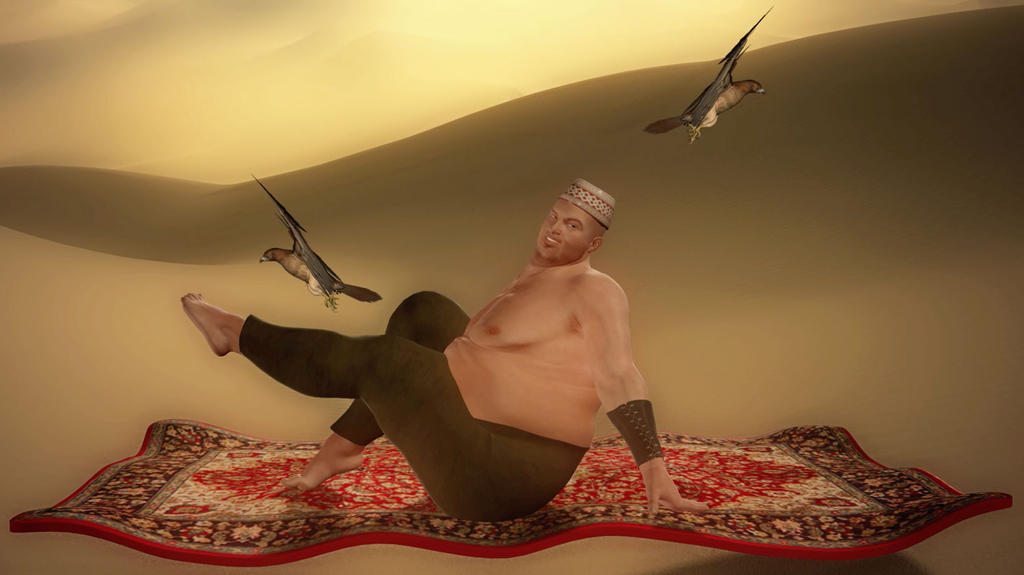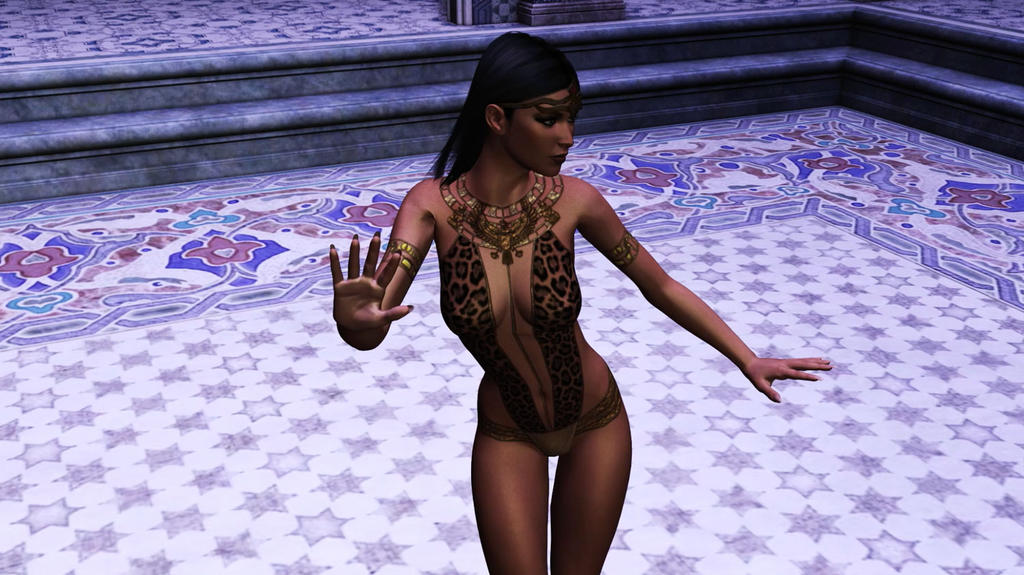MONDAY MIXTAPE: KALI
'GHORMEH SABZI'
We’re proud to present the exclusive Persian-Psych-Funk extravaganza “Ghormeh Sabzi” compiled and mixed by KALI. Persian-born recording artist, DJ and music producer Maral Salmassi aka KALI digged deep in the crates for this mix and gave us a very insightful interview.
Maral Salmassi founded the Cologne-based Techno label Konsequent in 1997 and released artists like Jay Denham, Cari Lekebush or The Advent and Claude Young. After many other successes, including projects on her Art Of Perception label with Jimmy Tenor, Zombie Nation, Mike Ink, Andrew Weatherall, .. she co-founded the label Television Rocks in 2006. In 2010 Maral's single “Let’s Rock the Party” (a collaboration with Hamburg-based artists Fukkk Offf) became a massive club hit.
With her musical transition to “Bolly-Tech" (a combination of Trap, Hip-Hop, and Ghetto-Tech influenced by traditional Bollywood and Maghrebian music) comes her new identity: KALI! Traditionally, Kali is the Hindu Goddess associated with empowerment, transformation, and motherhood - all attributes, that describes her music and personality. Experience the corresponding video for the upcoming EP release “Sahara” below the interview.
Playlist
1. Littles - Fatemah Sultan
2. Mohammad Nouri - Biya Bar-e Safar Bandim
3. Mehrpouya - Ghabileh Laili
4. The Flowers - Meekshi Manoo
5 Fereidoon Foroughi - Divaneh Man
6. Parva - Mosem-e Gol
7. Googoosh - Talagh
8. Kourosh - Baroona
9. Giti - Shadi Ba Man Ghahreh
10. Mehrpouya - Soul Raga
11. Koroush - Ghazal
12. Ramesh - Sharm-e Boos-e
13. Koroush - Nameh
14. Zia - Kofriam
15. Littles - Mehtaab
16. Koroush - Gol-e Yakh
It seems that your musical output is becoming more and more personal by the release – what's prompting this shift?
I always knew that good output was based on having something compelling to say, which in fact requires artistic maturity. I had to learn more than how to sing or how to use certain software. In order to say something meaningful I had to internalize my experiences which of course requires patience and time. I still don't have much patience in terms of my progression, but through the two year break I took from making music I learned that it was really important for me to share my personal beliefs, so when I started making music again I took it very seriously and began to put those beliefs more directly into the music.
Have you addressed any of these topics on record, previously? I'm specifically thinking of identity politics in the Middle East and in the framework of Islam, women's rights etc.
Well, I do all the time through my work or debates with friends, but until now it hasn’t been at the forefront of what I spoke about in interviews or dealt with lyrically. I feel like now it’s more important than ever to start vocalizing the issues surrounding those problems. For example look at Iran after the Islamic revolution. It’s painfully obvious that women, who played a significant role in the victory of the revolution in 1979, were ultimately the victims. They lost the rights they had acquired in the last decade of the Pahlavi monarchy and were treated with disrespect and animosity in the name of Islam. For example: the enforcement of a hijab law after the Islamic Revolution. From my point of view this wasn’t just offensive and a women’s rights violation, but also the first step toward putting Iranian women against each other. Islamic Sharia law is full of human rights violations and is incompatible with the constitution of any modern civilized society. While women all over the world are fighting for freedom and equality, women in Islamic countries are told to cover up their shameful bodies or be killed, stoned, tortured and threatened when they refuse or raise their voices. Of course, violence, racism, misogyny and homophobia exist in all religious texts, but it is Islam which still in the 21st century adheres this principals so literally.
In the West the critical attack of Islam and Middle Eastern culture usually comes from the conservative right, where as the liberal faction tends to defend it. You're clearly a liberal…
Yes, I call myself a liberal... which to me means that I support the right of everyone to enjoy whatever religion they want to. But if these so-called religious people (who actually have my support in their choice of faith) refuse to respect my right of not believing in their dogma, that’s where my tolerance for them stops. It is absolutely suicidal. I would even go as far as to call it stupid and contrary to any liberal ideology to tolerate these kind of fascistic tendencies within a modern secular society. There is absolutely no excuse or space for bigotry, misogyny, violence, homophobia, racism, etc. in a modern civilized society, even if it’s done under the pretense of religion or tradition. Unfortunately I feel like none of the public debates about the Western view of Islam have ever reached a satisfactory conclusion. There are many reasons for this, including the fact that few of these so-called Western liberals have ever travelled to an Islamic country, spoken to women and children who live in those countries, or ever read the Koran. They believe that Islamic terrorism is a reaction to Western imperialism and capitalism and ignore the hypocrisy and resistance to self-criticism that exists in the Muslim world, which will continue to lead to unending violence. The Islamic culture is mostly concerned with righting past wrongs. Instead of looking to the future, they are stuck in the past, busy taking revenge on those who have humiliated and oppressed them. It is Muslim victimhood that the Western liberals use as an argument to defend Islam, while they fail to consider it as what it actually is: the perpetrator of Muslim revenge and violence. This makes it impossible for Arabs and Muslims to build societies, which could participate in the modern world.
Do you know if your music has an audience in the Middle East? I'm curious if you've received any feedback? Who are these people? What are their reactions to the music and your personal politics? Is it mainly women or is both men and women?
Yes, I do. My performance in 2013 on BBC Near East helped a lot to grow a fan base in Iran and Arab countries. My Near East fans are mostly from Iran, Iraq, Egypt, Tunis, Turkey and Kurdistan. There are a lot of young women among them dreaming of a better future without war and oppression. These people have internet, they are connected and they have access to Facebook, SoundCloud, etc. They are very informed and share a similar view on politics and appreciate my crossover of Middle Eastern and Western music. But there is also bad feedback. I remember a serious Islamic shit storm on my Facebook page because of a post displaying a painting of a woman wearing an apron with a lingerie print on top of a burka. I had about 300 comments full of insults and threats under this post.
Is there a thriving Electronica scene in the Middle East? Any specific cities which became a hub for the scene?
The music scene in Turkey is very interesting. There is an amazing documentary about the music scene in Istanbul called 'Crossing the Bridge' which was released in 2005, directed by Fatih Akin feat. Alexander Hacke of Einstürzende Neubauen as the narrator. Iran’s music scene is a truly underground since Western music is forbidden. Yes, they jail young people for listening to electronic music. Dubai seems to have a big electronic music scene, but it seems rather commercial and boring, serving rich Arab and Persian kids with cheesy House and EDM.
Are there Middle Eastern artists that you look up to for their stance on issues that are dear to you? Are any of them in the Middle East still?
I have great admiration and respect for all Iranian artists living in Iran. Art and music or artistic expression in general is heavily censored and basically outlawed by Iran’s “Ministry of Culture and Islamic Guidance“, and this is why every form of art in Islamic Iran is a form of protest. Every artist faces the same censorship which ultimately results in more innovative ways of expression in order to operate without the government’s knowledge. Makers and their audiences sometimes even meet in taxis, where entire plays are performed. Alireza Mashayekhi and Ata Ebtekar are both pioneers of Iranian avantgarde music. Ebtekar for example experiments with Persian classical scales from old Persian folk songs. The Syrian musician Omar Souleyman is great. I also love the work of the Iranian artists Shirian Neshat, Newsha Tavakolian, Shadi Ghadirian or the Lebanese artist Ayman Baalbaki.
I think most of the artists mentioned above live in exile.
Do you see yourself playing back in Iran anytime soon? Or anywhere in the area?
I’d love to play in Iran but unfortunately and for obvious reasons that simply isn’t possible.








